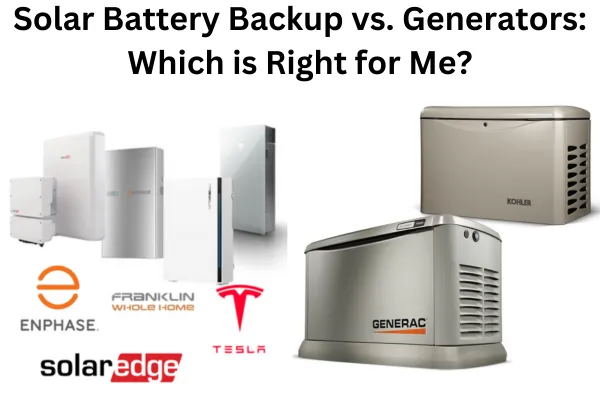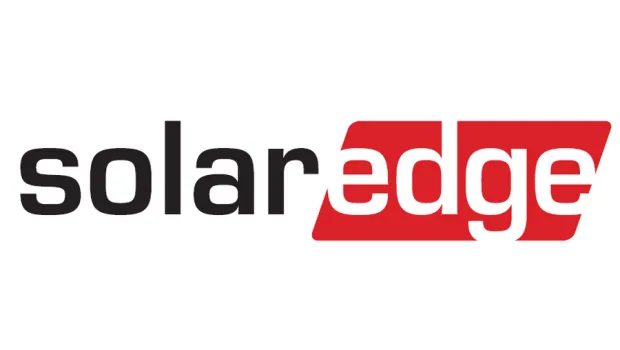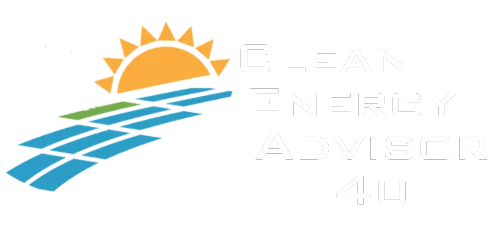
Solar Battery Backup vs. Generators: Which is Right for Me?
Solar Battery Backup vs. Generators: Solar Battery vs. Whole Home Generator—Which is Right for Me?
When the power grid goes down, the resulting outages can create significant risks for everyone affected. To maintain reliable power during such events, homeowners and businesses often consider either diesel or propane-powered generators or photovoltaic (PV) systems with solar battery backups.
As an installer, understanding the advantages and disadvantages of generators versus solar batteries in terms of equipment requirements, cost, reliability, and capacity is crucial. This comparison will explore the differences between a solar battery backup and a generator, highlighting some of the top products in both categories available today.
Solar Panel Storage vs. Generator
Comparing generators to solar batteries is like comparing apples to oranges. Solar panel installers play a vital role in helping clients understand these differences. By analyzing clients’ energy usage, installers can recommend the most suitable option.
Both systems require a substantial investment, so it's essential to discuss the payback period and associated costs with clients. Let’s review the pros and cons of solar batteries and generators to help determine the best choice for your needs.
Solar Battery Backup

A solar battery backup, or solar battery storage, stores and dispenses renewable electricity generated by solar panels. Products like the Tesla Powerwall exemplify this technology. A solar battery system is most effective when combined with a solar PV panel system and an inverter, designed to work with or independently of the electrical grid (on-grid or off-grid systems). While batteries can be used without solar panels, they must be charged by an energy source, such as the electricity grid.
Home solar battery storage maximizes the use of renewable electricity from solar panels, providing power during low solar output periods (like nighttime), outages, or peak electricity pricing times. Solar systems with battery storage allow homeowners to store excess energy generated during the day for use at night or during outages.
Common Solar Battery Backup Options:
Grid-tied AC-coupled batteries: Ideal for residential storage needs, these batteries come with built-in inverter technology, suitable for new installations and retrofits. Grid-tied systems require solar permitting and utility approvals.
Grid-tied DC-coupled batteries: These batteries feature inverters that handle high-voltage loads. While not suitable for off-grid applications, their compact size makes them popular among homeowners.
The depth of discharge (DoD) is a crucial factor, indicating the percentage of discharged power relative to the battery’s total capacity. A higher DoD means more usable solar power, with a target of 95% or higher being ideal.
Backup Generators
If you’ve ever heard a low hum during a power outage, it was likely a backup generator. These combustion-based generators use fossil fuels like natural gas or propane to generate electricity. They can be set to turn on automatically during an outage or be manually activated. Installation costs vary based on home size and the appliances you wish to power during an outage.
Pros of Generators:
Availability: Generators are widely available and relatively easy to buy, install, service, and repair.
Reliability: They provide dependable power, day or night, regardless of weather conditions.
Portability: Many generators are portable, allowing homeowners to move them as needed for emergency power.
Cons of Generators:
Environmental Impact: They rely on fossil fuels, emitting CO2 and other greenhouse gases.
Safety Hazards: Improper use can lead to carbon monoxide poisoning, electrical shocks, and fires.
Noise and Smell: Generators are noisy and emit unpleasant odors.
Inactivity: Generators remain idle for most of the year, representing a poor use of space and resources.
Maintenance: They require regular servicing, fuel top-ups, and other maintenance tasks.
A typical generator is not an investment, as it requires constant refueling, unlike solar batteries that recharge with free solar energy. This ongoing cost impacts both homeowners and the environment.
How Long Do Solar Batteries Last?
Solar energy storage systems often use lithium-ion batteries due to their high energy density and longevity, lasting 10-20 years or more. Lithium iron phosphate (LiFePO4) batteries, a type of lithium-ion battery, are known for their extended cycle life, often exceeding 10,000 charge-discharge cycles, making them ideal for long-term solar energy storage. The lifespan of a solar battery refers to the period it can retain a significant percentage of its original capacity, often considered to end when it retains only 80% of its initial capacity.
When financing your solar and battery storage thru Sunnova Financing, Sunnova® home solar service and Sunnova SunSafe® solar + battery storage service comes with our 25-year Sunnova Protect® Platinum plan. This extends the battery storage for 25 years and will be replaced over that period of time. This is a major benefit we offer.
What is a Solar Backup Generator?
A solar backup generator combines solar panels with an energy storage solution, typically batteries, to provide power during grid outages. It stores solar energy when the grid is active, ensuring an uninterrupted power supply during disruptions.
Do You Need Solar Panels to Have a Battery?
While solar panels are not required to install a battery, without them, you cannot recharge the battery during a grid failure. Batteries can be charged from grid power, but this leaves you dependent on utility pricing. With solar battery backup, you can recharge maintenance-free, leveraging enough quality sun hours in most U.S. locations to keep a battery fully charged.
Comparing Costs of Whole-House Generator to Solar Battery Storage
While solar battery storage system costs are higher than a backup generator, battery storage can also qualify for valuable solar incentives like tax credit savings and be used for offsetting peak demand rates.
Let’s compare the cost of installing a whole home generator vs a solar battery storage system.
The total cost of installing a 26kW whole home generator can be around $12,000 to $15,000 to buy and install. Depending on where you live, pricing may differ.
The cost to run your generator when the power goes out can cost $30 - $60 per day.
In addition to labor costs for repairs, it is also important to consider the cost of regular maintenance and upkeep. Annual maintenance costs for a whole-house generator can range from $200 to $600.
The cost of a Tesla Powerwall 3 (27kW) with installation can be around $19,000 to $22,000. Depending on where you live, pricing may differ.
The Federal Tax Credit for Battery Storage is 30%, meaning if you qualify, you can receive $5,700 to $6,600 back on your return. Now the net cost of the battery storage is $13,300 to $15,400.
With solar battery backup, you can charge and recharge, maintenance-free. There is a common misconception that solar only works in sunny “hotspots” in the United States. However, there are enough quality sun hours a day to provide a large portion of households in the United States with enough energy to fully charge a battery.

And if your project is financed thru Sunnova, solar + battery storage service comes with our 25-year Sunnova Protect® Platinum plan.
Best Solar Battery Backup Recommendations
Choosing the optimal battery technology depends on various factors such as configuration (AC- or DC-coupled), capacity, cost, solar-readiness, design, and warranty. Popular solar batteries on the market include the Tesla Powerwall 3, SolarEdge Home Storage and Backup, Enphase 5P IQ Battery, and Franklin Whole Home Power.

In conclusion, deciding between a solar battery backup and a generator involves weighing the pros and cons of each system based on the specific needs and circumstances of the client. Both options offer reliable power solutions, but their suitability depends on individual requirements and priorities.







For nearly a decade, we've been delivering top-notch solar and electrical solutions to residences and businesses, regardless of their scale or type. Our family-operated enterprise prioritizes economical solar setup and upkeep, offering a refreshing alternative to the expensive, sales-centric methods commonly seen in New Jersey's solar energy industry.
Call 609-337-4117
Email: info@cleanenergyadvisor4u.com
Site: www.cea4u.solar
